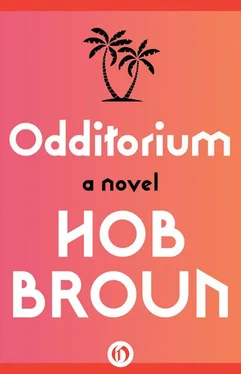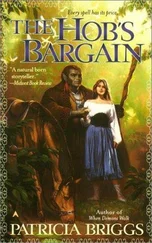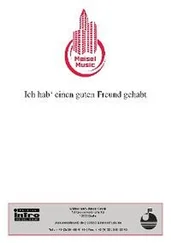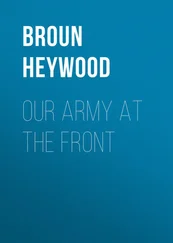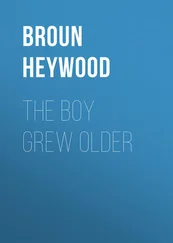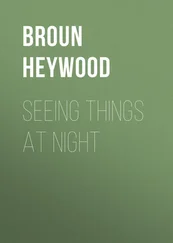“They running you pretty ragged at boot camp?”
“They surely are. Yes, ma’am.”
“‘Right left right. Right left right.’ Some kind of life, huh?” Smoke streamed from her nostrils as she turned to face him. “Bet you’re glad to get out of there, even for a couple of days.”
“S’pose so. But it ain’t so bad, not really. They’re teachin’ me a skill. Gonna be a certified radar technician when I get out.”
He looked so familiar, like the boys she used to dance for in the enlisted men’s clubs Sparn pitched her to (“Okay, so she’s not exactly stacked, but you know what they say: It’s not the meat, it’s the motion”) when he first took her on.
She could remember pumping her hips, flashing her sequined pasties at those avid faces. She could remember their heavy breathing, invariable as a parade cadence. And the way they’d haunt her dressing room afterward, certain that someone who displayed her body for a living would be more than happy to open her arms (and legs) to a fighting man. “You’re awful pretty. You know they’ll be shippin’ me to Nam next week.” Tildy tried to be patient with them. She understood how truly innocent they were, how sex was to them a dark and uncharted jungle land, that they were the expeditionary force, full of arrogance and lies about the natives, without a knowledge of the language, or the support of the bigwigs who had sent them.
Tildy swerved to avoid an animal carcass in the road. “Did you enlist or were you drafted?”
“I signed up all right, but it weren’t so much my own idea. It was my guidance counselor, she said I’d be wastin’ my time in college. Nice lady. She even gimme a ride to the recruiter office.”
Two hours later they stopped at his exit ramp. Tildy placed a soft, dry kiss on his cheek and pushed him out the door.
“Watch out for yourself, Harmon. And don’t you be taking any more rides with women.”
She checked the rearview mirror as she pulled out. There he stood in the liquid glow of a mercury lamp, barrack bunk fantasies unfulfilled, staring pitifully after her.
Tildy reached Ville Platte just after sunrise, the sky smeared with yellow clouds the color of old salve. She cruised back and forth on half-familiar streets, unable to summon up any sensation of nostalgia. This was a place she’d been before, a place where she had passed some time, but it was not home. Like everywhere else, some landmarks had fallen: Mamou’s Chicken Shack was boarded up and the movie house was for sale. But she felt no sense of loss, any more than she felt relief to see that the old drugstore was still standing, the one where she’d drunk hundreds of vanilla Cokes as a child. She did not stop in for breakfast. She did not care if there was anyone inside she could recognize, or who might recognize her. After a cup of weak coffee from a vending machine, Tildy headed out LaForche Road to her father’s house.
Tildy’s olefactory sense had always been highly developed. Her earliest memories were keyed to smells. There had been a period when she was five or six when the smells of road tar or laundry soap, of cellar mold and simmering red beans had registered so powerfully as to be nearly painful. Later on, she learned to do tricks with her nose. From a whiff or two of someone’s breath, she could tell them what they’d had for lunch. Led blindfolded into a deserted classroom, she could accurately identify it from the lingering pheromones of the teacher.
Adulthood had dulled her receptors, but still, as she strolled in the parched grass at the side of her father’s house, she could smell him through an open window; the stale fumes of his sickness at first, like mist hovering over a poisoned well, and then underneath, his own animal scent as she’d always known it, a sharp blend of vinegar and charred metal. This was the home place, just exactly as she’d left it all those years ago.
Except for the stooped little woman in black tennis shoes standing at the kitchen stove and stirring something in a pot. Her iron gray hair was in a single braid that reached all the way to the base of her spine.
“Don’t you be alarmed, honey. Joby Daigle, I’m the one wrote you them letters. Sit yourself down, I’m jes makin’ Lucy his breakfast.”
“How is he?”
“We takin’ it a day at a time. So you’re Clothilde, the daughter. I could see it right when you come in that door. You got Lucy’s eyes.”
Tildy stood awkwardly beside the wicker rocking chair, as unprepared for it all as she’d figured all along. “Thank you for the letters. And thank you for taking care of Papa this way. There’s really no way for me to tell you how much I appreciate it.”
“Don’t you try, honey. I ain’t due no thanks. Cared for Mr. Daigle three years before he passed, a good sweet man and partial raised right here in Evangeline Parish. Now I’m carin’ for Lucy and seems like that’s somethin’ I was intentioned for. I take my share of pleasure in it, so I ain’t due no thanks.”
“Well, thank you just the same,” Tildy said. “You’re what’s keeping him alive.”
Mrs. Daigle turned off the stove, emptied gruel into a bowl and swirled in a few tablespoons of molasses. “Lucy’s got a terrible sweet tooth. You go on in and see him now, take him his farina. Jes don’t be too surprised if he don’t know you right off. Lucien, he ain’t home no more in here.” She pointed to her forehead.
To see if she still knew the house in darkness, Tildy went down the hall with eyes shut, took a sharp left at the stairs, then stood against the doorframe of what had once been her bedroom. She opened her eyes.
Lucien was on his back, the outline of his body, under a tattered wool coverlet, no wider than a light pole. His flickering eyes sat deep in their sockets and all around his hairline and under his jaw the skin was flaky and white. On newspapers carpeting the floor were globs of his viscid black sputum.
Cupped in Tildy’s palm, the bowl was hot. She nudged the big spoon slowly around the rim. Now or never if she was going in there.
“Papa. It’s me, Papa. Your daughter’s come to see you.”
Lucien said nothing. He gave no reaction as she knelt, smoothed the covers, kissed his dry, stubbled cheek.
“ As-tu faim, Papa? C’est Clothilde ici. … I can come back later if you want to sleep.”
He rotated his head toward her and his eyes snapped open wide. “You have been where?”
“On the road mostly. I’ve wanted to come and see you.”
“I know, yes. Thems doctors out there no let you in. Devils they are, in that disguise of white.”
“No, no. C’est un rêve . You’re home now, Papa. They can’t bother you here.”
“They know me, yes.” Granular mucus clattered in his throat. He braced his elbows against the mattress, legs twitching, as a series of coughs ripped through him. “They come in the night with metal pipes to drain my body…. I am so weak from this, me.”
“Why don’t you eat something, okay?”
“Clothilde, you say? Ma fille?” He touched her face.
“Come on, I’ll feed you.”
“Clothilde?” He eyed her suspiciously. “What is this food?”
There was a face towel draped over the end of the bed which Tildy spread across his chest, resting the bowl on top. She held the spoon against his lips, tilting it slightly onto his lapping tongue, scraping dribbles from his chin.
“Thatta boy,” she cooed. “It’ll warm you up inside.”
Lucien grunted and pinched his lips together, suddenly mulish. Farina slithered down his neck and onto the yellowed collar of his pyjamas.
“Don’t. Don’t make me cry, Papa.”
Lucien Soileau grew up in Pointe Bleu, a small settlement near Lac Saint Jean in the Laurentian Hills of Quebec, the youngest of eight brothers. At the age of ten he went with them into the forests, at first only to carry their tools and water jugs, later to earn his keep at one end of a crosscut saw. He was always the last to eat, the last to get new shoes. After Sunday Mass, his brothers would break out the applejack and take turns beating him up. His father, confident that this battering could only serve to toughen his youngest, a shy and sometimes hysterical boy, stood by shouting encouragement.
Читать дальше
